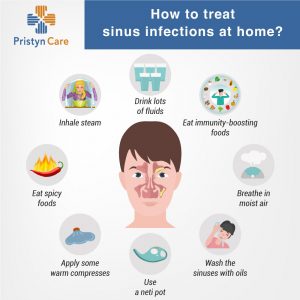
There are several sinusitis treatments available. Home remedies for this ailment may help you relieve some of the discomfort. However, the infection may get worse over time and require the assistance of a doctor. If the symptoms last for more than a few days, you should visit your doctor for a proper diagnosis and treatment. There are many different types of medications that are available for treating this disease, and they include medical treatments, immunotherapy, natural treatments, and even surgical procedures.
A medical specialist can diagnose acute sinusitis by looking at the symptoms of your sinuses. A medical professional will look at your throat, nose, and ears to check for blockages and drainage. Your doctor will also perform a physical exam to determine whether or not the infection is bacterial or viral. If the symptoms are mild, the doctor may prescribe a medication to alleviate the symptoms. A physical exam will also be performed.
In some cases, a healthcare provider may decide that antibiotics are not necessary. Some people will opt for a home remedy that involves using a hot damp towel on their face. It is also beneficial to take a steamy shower, since this will help clear the sinuses. Other home remedies may include saline nasal spray to keep the nasal passages moist and wash away mucus. A doctor may prescribe over-the-counter medications to relieve the pressure inside the head.
In addition to anti-inflammatory medications, treatment options for sinusitis include nasal irrigation, guaifenesin, and a nasal decongestant. These medications thin the mucus and can be used to relieve symptoms. The nasal decongestant guaifenesin is another drug that may be prescribed. These medications should be taken with a glass of water. Doctors may also prescribe an antibiotic if symptoms do not go away within two weeks.
A medical examination may be required to diagnose and treat sinusitis. Your doctor may perform an ear, nose, and throat exam to rule out an underlying condition. During a physical examination, your doctor may examine your teeth and facial features to look for any abnormalities. If pain or swelling occurs, the patient will be asked to stand and walk around to relieve pain. If this approach doesn’t work, your doctor may recommend surgery to correct the problem.
If you have been experiencing these symptoms for more than a week, site https://laolladechile.com/salud-blog/

may recommend specialized sinusitis treatment for you. The doctor will check your symptoms and prescribe an antibiotic if necessary. Warm compresses and steam can help relieve facial pain. Other over-the-counter medications, such as acetaminophen and ibuprofen, may relieve symptoms and reduce fever.
In many cases, sinusitis is caused by uncontrolled allergies. Your doctor may prescribe allergy medicine or allergy shots to treat the cause. These medications will reduce sinus inflammation and help you breathe easier. For chronic sinusitis, surgical intervention is possible. The doctor may use a thin tube with a light to remove polyps. A patient who does not respond to allergy medications should consult a specialist.
While home remedies for sinusitis may help, it is best to seek medical treatment. An over-the-counter medicine called ibuprofen may help ease symptoms and reduce the amount of time it takes for symptoms to subside. A medical professional will also recommend a treatment that is customized to your needs. If you are not sure if your sinus problem is acute, your primary care physician may recommend a course of antibiotics or a nasal spray.
Your healthcare provider will conduct a thorough examination and ask you about your symptoms. A medical history will be necessary to determine the cause of your sinusitis. If you suspect that your condition is due to allergies, your healthcare provider may recommend allergy medication or allergy shots. These medications will gradually make you less sensitive to the allergens that trigger your sinusitis. If your symptoms are severe, your healthcare provider may prescribe an oral or inhaled steroid to reduce swelling.
Over-the-counter acetaminophen and Aspirin are two common drugs used for treating sinusitis. These medications are effective in reducing the amount of swelling and mucus in your nasal passages and can be used to relieve the pain. They are also useful in the treatment of recurrent sinusitis. During this period, you can try a variety of other medications, which can be helpful for your condition.